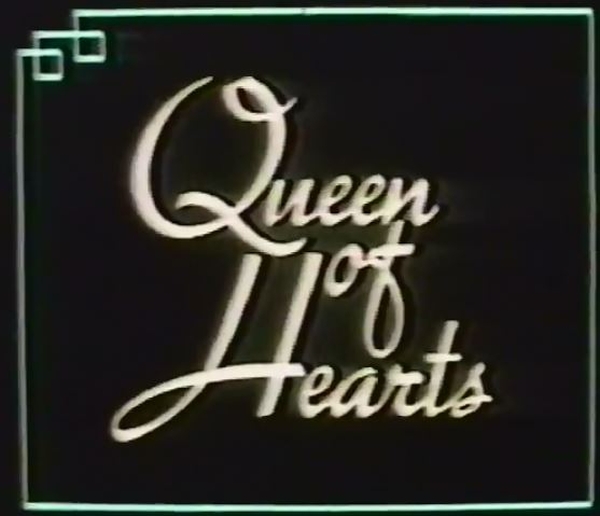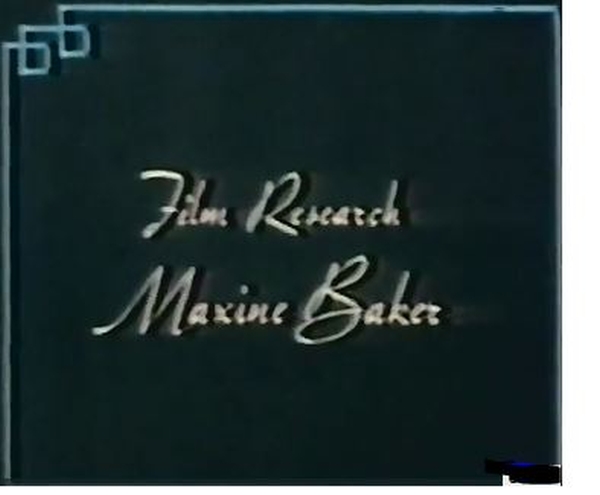Maxine Baker was born in 1945 at Harton Hospital in South Shields. She then lived at Pickering Nook near Burnopfield.
St Anthony’s -1956-1963
Maxine went to St Anthony’s Catholic School for Girls Sunderland. To get from Burnopfield Maxine used to get three buses to cover the 20 mile journey. She would leave the house about 6.30 in the morning and take the first bus of the day with all the miners on their way to the pit.
University – 1963 – 1966
She obtained a B.A. Honours Degree in English at Leeds University. At Leeds she worked on the student newspaper she said “a very valuable experience for anyone who wants to be a journalist”.

Tyne Tees Television – 1966

In the 1960s The Animals were nearly as big as The Beatles and House of The Rising Sun had been number 1 in the UK and America. Maxine was working as a researcher for Tyne Tees Television and went to interview Eric Burdon at his home in Wallsend his mother answered the door and shouted up the stairs:
“Wor Eric the people from the Telly are here to see you!”

Thames Television – 1970
Maxine then moved down to London and gained a researchers job on the popular television programme: This is Your Life, with the presenter Eammon Andrews. She researched and would have met the following stars amongst others: Bob Hope, Bobby Moore, Jon Pertwee, and Matt Busby. Maxine being a big football fan Bobby Moore would have been a special treat.

On leaving This is Your Life she was given a replica of the Big Red book, signed by Eammon and all of the crew, she still has the Big Red book.
Queen of Hearts
Maxine went to Argentina and obtained exclusive photographs and video footage of Eva Peron and then smuggled them out of the country a massive risk to take.

Her account of it is taken from her book Documentary in the Digital Age, page 257.
Carlos Pasini was filming a documentary about Evita’s life story. Apparently they were having problems. One day I got a call from the legendary Jeremy Isaacs, then head of features at Thames. We all had massive respect for him, as a film-maker and a boss. He encouraged us to be bold and commissioned all sorts of projects which would have no chance in British television today. He also backed his people. I was in awe of him. I walked into his office and he fired a question at me, using a line which could have come straight out of a 1940s newshound movie, ‘Carlos needs help. I want you to fly out to Argentina tomorrow. Can you do it?’ Of course, I said yes. ‘OK. Go get your jabs.’
He was right, Carlos did need help. This was the period of instability in Argentina when Peron, who had been in exile for years, was about to return with his wife Isabel, who was going to run for president. The generals had not yet seized power again but it was likely that they would. The Peronists were considered to be the biggest threat to the oligarchy and any mention of the name of Evita was politically dangerous.
My job was to work separately from the crew, gathering photographs, sound recordings and archive film of Evita. On the surface pretty simple, but in Buenos Aires, at that time, political dynamite. Carlos gave me a fixer to help but I quickly found it easier to work alone as much as possible for the simple reason, still true today, no doubt always will be, that a young woman with a cute accent and a short skirt, running around asking questions, was never going to be taken seriously by the authorities.
People took alarming risks to help me. Photographs and film of Evita had supposedly been destroyed after the coup against her husband. But there were hidden stashes which Carlos identified for me and I went down there, innocent and ignorant, asking for help. I always got it. But the curators and film people wanted to make sure that they would not be implicated when the film was shown in the UK. So I had to sneak into the photographic archive after it closed. The curator re-photographed every picture I needed on 35 mm stock with an ordinary SLR camera. I was not allowed to have them processed. Rolls of unprocessed film stock in a young woman’s handbag at customs surprise no-one.
I went to a movie studio where they still had some of her films, despite her own order to destroy them. In my taxi, on the way there, the driver called in and told somebody where I was going – obviously not his controller. When I got back in the car after my meeting, I was carrying what looked like a pile of dry cleaning. The driver radioed in, ‘The stupid bitch forgot her cleaning; she’s just picking it up.’ The studio had sensibly disguised the parcel containing clips from Evita’s movie career. And it never occurred to the people who were watching my movements that I could understand every word they said.
I left Argentina with hand baggage containing 16 mm copies of her brother’s home movie record of Evita’s Rainbow Tour of Europe in 1943, a stash of 35 mm photographs of her, which have since become very famous, and clips from the movies that should have been destroyed. At the airport when we left, there was a special security check. All bags and people to be searched. I had in my hand-baggage Evita’s home movies on 16 mm film. But no camera. The crew had refused to hide the film among their kit for me because they were all aware of what a hot potato I was carrying. One of them had said to me, ‘Leave it here, love. I’m not prepared to risk my life for Thames Television, neither should you.’ But once again, the daft young thing act worked. The female customs officer searching my bag found one can, then another, then another. I said, ‘I was filming your city, it is so very beautiful.’ No camera. Three cans of 16 mm. A tourist? She told me to go, quickly. I have never been so happy to take off from any airport. Shortly after we left, the coup happened and Argentina was plunged into dictatorship by the military.



Screen shots from the documentary by Carlos Pasini, “Queen of Hearts”, “Film Research Maxine Baker”
Tim Rice was introduced to the film director Carlos Pasini Hansen who had produced the TV film Queen of Hearts, which had aired in the UK on 24 October 1972. The executive also arranged for Rice to see the film at Thames Television which he did “at least twenty times” saying also that “by that time I had seen Pasini’s superbly researched film, I was hooked. (Wikipedia).
Queen of Hearts was the inspiration for Evita, and Maxine Baker was the Researcher who made the Evita phenomenon possible, The film Evita alone has earned over 150 million dollars!
The Mighty Continent – 1974
A BBC 13 part series of a view of Europe in the Twentieth Century with personal comments by Peter Ustinov written and narrated by John Terraine.
Troops Out
Maxine was instrumental in forming the Troops Out movement. Adele Winston: “I remember going round Hammersmith with her, risking imprisonment under the sedition laws, putting Troops Out stickers on lampposts.”

Granada Television

Camera: A Victorian Eyewitness – 1979

A 13 part series for Granada tracing the development of Victorian photography.
Camera: Moving Pictures – 1980
A six part series looking at the early pioneers of moving pictures with Gus MacDonald now Lord MacDonald.
Devil’s Advocate
Devil’s Advocate, a programme made by Granada Television and networked on a Sunday night on ITV about youngsters on the dole, presented by former World In Action editor Gus Macdonald. The show was made in reaction to the Scarman Report which looked into the causes of that summers riots in Moss Side, Toxteth, Brixton. Maxine produced at least 3 episodes including one entitled Prejudice.
End of Empire – 1985
End of Empire chronicled the last days of British rule around the globe, with former British and colonial officials. Maxine produced the programmes on the Gold Coast (Ghana) and the Central African Federation (Zimbabwe, Malawi, Zambia)



Victorian Values – 1987
A 6 part series for Granada, a response to the Thatcher Government’s version of Victorian History with well known presenter Bamber Gascoigne.

The Benn Diaries – 1988-1989


Maxine made two programmes on Tony Benn’s Diaries.
Curse of the Superbug – 1991
This was a World In Action documentary about the dangers to public health of the hospital superbug, MRSA – a warning that, sadly, was not heeded by the authorities.


Empires of Oil – 1993
Witness capitalism on a grand scale: how Shell Oil and Royal Dutch merged, then challenged the supremacy of Rockefeller’s Standard Oil. A compelling tale of how oil transformed everyday life in the farthest corners of the globe, made Russia a great oil power, and helped the Allies win World War I. Narrated by Donald Sutherland.
Scottish Film Council – 1995 -1997
From 1995 to 1997 Maxine was Chief Executive of the Scottish Film Council, where she worked closely with the government’s Scottish Office in setting up Scottish Screen.

At The Sharp End of The Knife – 1999
Maxine was Executive Producer on this documentary, described as: “An eye level view as Scottish woman activist Cathy McCormack is invited to the townships of South Africa to meet fellow activists building the ‘New’ South Africa.”
International School for Film and Television, Cuba – 1998- 2012
National Film and Television School Beaconsfield
After 1998 Maxine divided her time doing teaching assignments between these two very famous film schools.
Documentary In The Digital Age – 2006
Maxine wrote this book analysing the experiences of eleven of the leading documentary film makers and her own personal experiences of forty years of documentary film making.

Later Life
In later life Maxine developed dementia.
Sources:
Maxine Baker
Terry Ford
Carlos Pasini
Photos:
Maxine Baker
Terry Ford
Wikipedia
